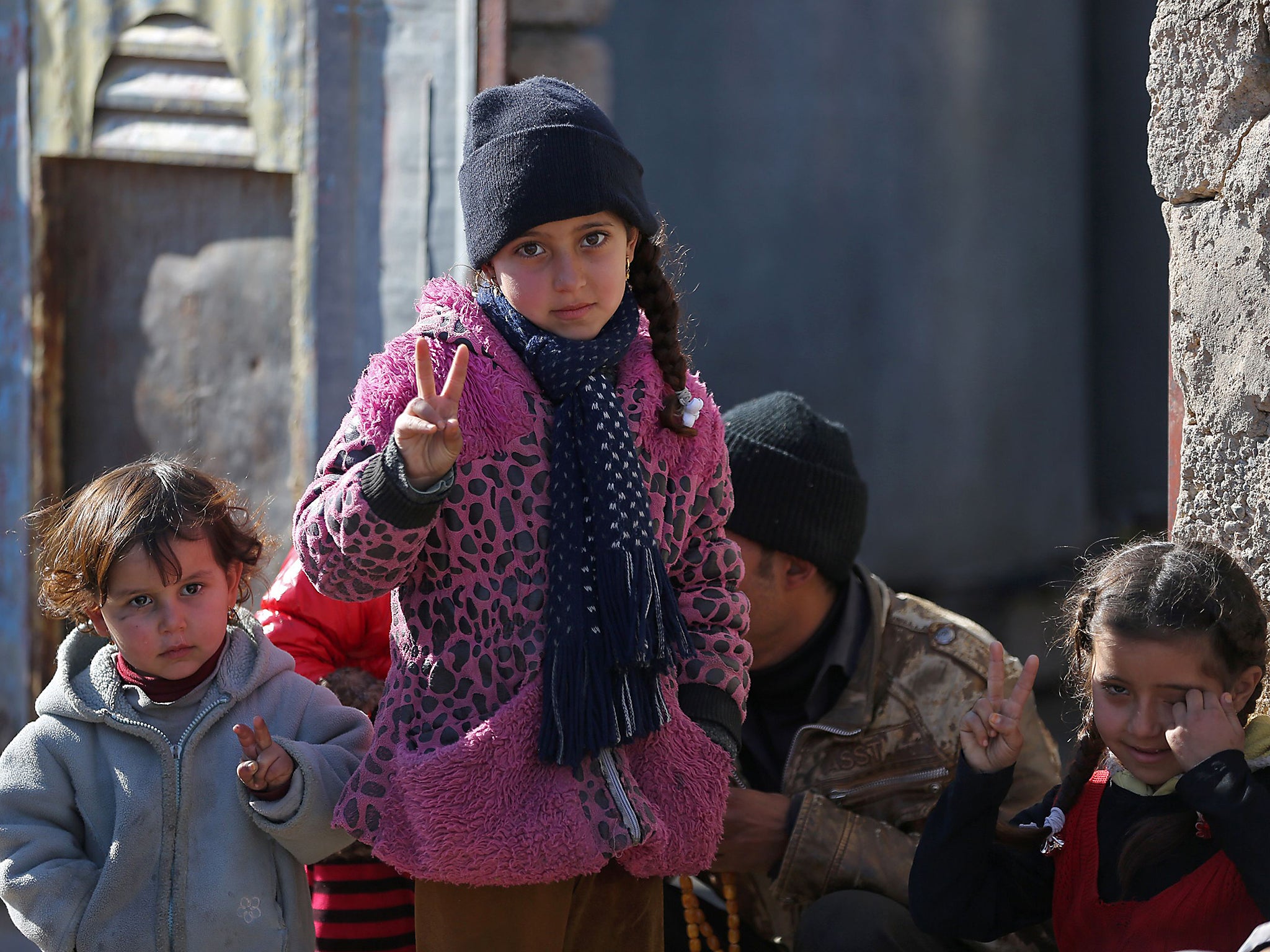When Isis finally leaves Mosul, Iraq risks resorting to infighting once again
One of the symptoms of this deep-seated sectarianism is the proliferation of local militia groups. As young men return home, they are being enlisted by tribal leaders

“Isis is like a mushroom. It was able to grow here, in Iraq, because there is a fertile environment. It didn’t just come from nowhere.” That is what one Iraqi activist told me, with an edge of anger and passion in her voice, when I was in Iraq late last year. She went on to say that Isis could not be – and should not be – eradicated through bombs and fighting. Instead, Iraq desperately needed to embark on a national programme of reconciliation and reform.
To be honest, this jarred with me. I had heard harrowing stories of the systematic cruelty Isis meted out to the civilian population. I had seen the destruction it left in its wake, from flattened villages to burning oil fields that coated everything, including the faces of children, in a black film.
But her words were a vital reminder of the nature of Iraq’s challenges; that atrocities had been committed by all sides; that the country needed to acknowledge and address layers of grievance.
Over the last two weeks, the fierce battle to retake Mosul from Isis has intensified. More than 140,000 civilians have fled their homes since the latest phase of the military operation began in October 2016. So far the Iraqi army, the Kurdish Peshmerga, their international backers and assorted militias have avoided mass civilian casualties. But, as the army enters the dense residential areas of Mosul, families face impossible choices. They are trapped between warring parties.
The media and political narrative about Iraq tends to be dominated by Isis, but Iraq’s challenges don’t begin and end with the liberation of Mosul.
Even before the current offensive, 3 million people had been uprooted from their homes. Across the country, there is a mosaic of displacement. Sectarian conflict and identity politics drive people from their homes just as Isis does, and the experience of displacement can in turn reinforce sectarianism. There are communities unable to return home because they are perceived to be the “wrong” sect, tribe or religion. There are people in need across the board, and this is why Oxfam is supporting people who have returned to or stayed in their homes, as well as those who have fled violence.

Whenever I travel to war zones, I ask our local staff about mixed marriages. It tends to be a good conversation starter and a good, if highly anecdotal, bellwether of inter-communal relations.
One of Oxfam’s engineers told me that he was the result of a mixed Sunni-Shia marriage and his wife was Kurdish, but that mixed marriages were increasingly rare. Perhaps even more revealingly, he told me he could never work for the government – whether the Kurdish Regional Government, the central government in Baghdad or Iraqi local authorities – because he would always be considered to be from the “other side”.
One of the symptoms of this deep-seated sectarianism is the proliferation of local militia groups. As young men return home, they are being enlisted by tribal leaders. I spoke to one such young man who was guarding a water plant that had been destroyed by Isis and subsequently repaired by Oxfam. When I asked him why he had joined the militia he shrugged, as if it was obvious. “This is what we need to do to protect our home,” he said. One security consultant I met wryly described these young men as “Neighbourhood Watch with guns”.
While militias provide a source of employment and, in some instances, a degree of protection, they also put communities at risk and breed instability in the long term. A couple of women in their early twenties, from the same town, told me that jobs for young men boiled down to a choice between joining the local militia or the local police force – and the distinction between the two can be blurred.
The Iraqi army, the Kurdish Pershmerga and a range of militias have joined international backers like the US and Britain in a marriage of convenience to counter Isis. But once their common enemy is pushed back, there is a risk that these various forces could clash, or that another dangerous group could emerge if underlying grievances in this oil-rich country are left to fester.
This is why it is crucial to plan beyond the short-term military strategy and, however difficult, work to create a new environment in which Isis or a successor simply cannot mushroom and grow.
Maya Mailer is head of humanitarian policy and campaigns at Oxfam. She recently returned from Iraq, where Oxfam supports families who have fled Isis
Join our commenting forum
Join thought-provoking conversations, follow other Independent readers and see their replies
Comments
Bookmark popover
Removed from bookmarks